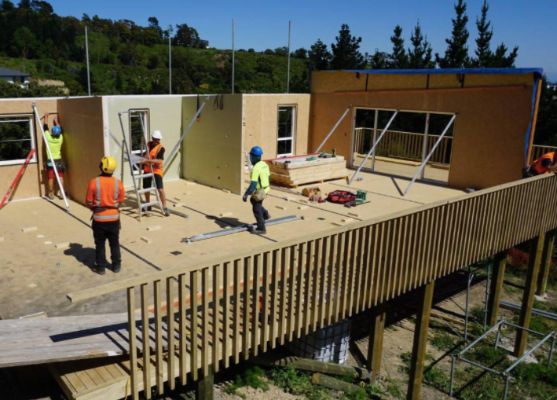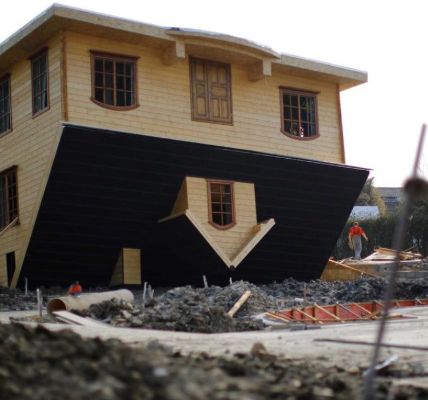Residential Construction Reforms Save Time And Improve Quality Control
Amendments to the Building Act seek to improve the efficiency and quality of building work and ensure that any problems are resolved fairly
One down and one to go
The Building System Legislative Reform Programme is a series of legislative changes to the building system that will lift the efficiency and quality of building work, and provide fairer outcomes if things go wrong.
It is hoped that streamlining and certification of various functions in the newly signed-off first phase will ensure standards, do away with an endless string of repetitive consents and substantially cut building times for residential homes.
The changes are being progressed in two phases.
Phase One, the Building (Building Products and Methods, Modular Components, and Other Matters) Amendment Bill, gained Royal Assent on 6 June.
This bill is focused on improving the assurance system for building products, including CodeMark, and creating a voluntary certification scheme for modular component manufacturers (such as prefabrication and offsite manufacturing).
Phase Two focuses on the professionals in the sector. It will progress reforms to occupational regulation of engineers and practitioners in the building and construction sector, so that people can have more confidence in these professions and their work.
The first set of changes includes introducing a code of ethics for Licensed Buildings Practitioners, improving the efficiency of the licensing process, and the structure of the complaints and disciplinary model run by the Building Practitioners Board.
Minister for Building and Construction, Poto Williams says the Government is committed to working with the sector to improve the occupational regulation of the various professions within the sector “as we continue to advance the biggest changes to the Building Act since its inception.” The bill introduces minimum information requirements about building products to “support better and more efficient decision-making and strengthen the product certification framework (CodeMark) to improve trust and confidence in the scheme.”
The bill would ensure that products sold in New Zealand comply with the building code and establish a new manufacturer certification scheme for non-traditional methods of construction, such as modular components and off-site manufacture.
It strengthens penalties for breaches of the requirements and creates new offences for noncompliance.
The definitions of building products and building methods was not amended because “building products and building methods may evolve over time, and the regulation-making power would allow for this, without the need to return any legislation to Parliament.”
Simply put, building product with various qualifications is defined as “a product that could reasonably be expected to be used as a component of a building and building method means a method for using one or more products or things as part of building work”.
Because a number of complex new regulations would be needed to implement some of the changes proposed by the bill, the final commencement date has been pushed out to 15 months except for range of amendments able to come into force with immediate effect.
Under section 48 of the Building Act, the standard time limit for decisions on building consent applications is 20 working days, but this is shortened to 10 working days in specified circumstances.
The 10-day time limit would apply when the building consisted entirely of a single modular component and had been manufactured by a single certified manufacturer.
The new bill allows the introduction of a new voluntary manufacturer certification scheme for Modern Methods of Construction (MMC). This works by certifying manufacturers to produce consistently safe and reliable building components and modules.

The end-to-end process from design (where relevant), manufacture, assembly, and right through to transportation and installation on-site, are assessed with ongoing checks and balances to ensure construction meets the requirements of the building code.
Once certified, third party inspections, audits and post-certification surveillance will provide confidence of quality construction.
Consenting authorities can focus on on-site building work not covered by the MMC certification such as site works, foundations, plumbing and electrical connections or connections to utilities such as sewerage and storm water.
A manufacturer’s certificate for a modular component will be considered or accepted as proof of compliance with the building consent.
Under the amendments to the Act, the government says manufacturers who prove their systems and processes are compliant will benefit from a new streamlined nationwide consenting process for prefabricated buildings.
This will enable the mass factory production of high-quality buildings, halve the number of building inspections for factory produced buildings and ensure only the location where a prefab house is installed requires a building consent, removing the possible need for two separate consents.
Current consenting processes are geared to traditional construction methods and create barriers, duplication and delays for more innovative products and methods.
The industry is well ahead of the game and already can deliver innovative and affordable housing efficiently, using techniques such as prefabrication and off-site manufacturing.
Concision off-site manufacturing in partnership with Versatile recently completed a four-bedroom, two bathroom, brand new family home in just 10 weeks, start to finish.
The home’s 43 panels were manufactured in Concision’s factory in just two days. They were then delivered to site and installed in a single day.
“In general, we can turn around the panels for a standard 150m2 home in about four hours and have capacity to build 1000 homes a year.
Concision panels have recently been put to use in a 41-apartment block in Wellington, schools in Canterbury and Auckland and state housing units in Napier.
Fletcher Building through its Clevercore brand has a hi-tech facility up-and-running in Wiri to “accelerate the manufacture of quality homes at scale by producing the core structural components of a home in a factory environment, in as little as a day.”
This reduces onsite build times by 60 percent, or from 22 weeks to around 6-10 weeks, the company says.
The MBIE review includes managing risks to the health and safety of the public, and the financial risks to consumers if work is done poorly

The overarching objectives of the current MBIE review of the Licensed Building Practitioners (LBP) scheme are to ensure first that regulation under the scheme is proportionate to the risks to public safety and wellbeing.
It seeks to ensure that practitioners provide services with reasonable care and skill, operate within their areas and levels of expertise and can be held to account for substandard work and poor behaviour.
“We are strengthening our occupational regulation of so that New Zealanders can remain confident in LBPs and their work,” said Amy Moorhead, MBIE’s Building Policy Manager.
The LBP scheme was introduced in 2007 following an amendment to the Building Act, to help address gaps in the performance-based regulatory system that were exposed during the leaky homes crisis. It has not been reviewed as a whole since.
The LBP workforce and wider building system has continued to evolve and become more specialised, and demands on builders have increased.
The purpose of occupational regulation, including the LBP scheme, is to give people confidence in practitioners and their work and the regulations may not have kept up with the changes in the building sector, says MBIE .
The scheme makes an important contribution to safe and durable residential buildings but does not regulate the entire building profession, just licensed builders when they are carrying out or supervising restricted building work.
This only affects residential construction, and does not include commercial
construction, including most medium-to-large apartment buildings.
When MBIE consulted on strengthening the LBP scheme in 2019, building consent authorities, industry groups and some builders reported they do not have confidence in the scheme because the required competencies to be licensed are too low.
MBIE is currently seeking feedback from Licensed Building Practitioners and those who engage with them on three key elements of the scheme - the ability to supervise non-LBPs undertaking restricted building work, licensing classes and if the minimum standards of competency remain appropriate.
In September 2020, MBIE undertook targeted consultation on proposals to strengthen the LBP scheme, as part of the first set of changes. The issues addressed in the current plans will lead to the second set of changes.
The Government has agreed to strengthen the LBP scheme to introduce a code of ethics, improve the structure of the complaints and discipline model, to introduce independent investigators and to enhance the efficiency of the licensing administration process such as including a grace period for late renewals.
Minister for Building and Construction, Poto Williams says the Government is committed to working with the sector to improve regulation of the various professions within the sector “as we continue to advance the biggest changes to the Building Act since its inception.
“The sector is vital to New Zealand’s recovery from the COVID-19 pandemic, and a strong and robust LBP scheme is needed to provide assurance in practitioners and their work as we continue to improve the nation’s housing stock.
“The scheme ensures that building practitioners have the right skills, knowledge, experience and behaviours to carry out and supervise quality building work. This reduces health, safety and economic risks to homeowners from substandard building work,” she says.
The MBIE is currently reviewing feedback from a discussion document to a further three proposed changes to the Licensed Buildings Practitioners (LBP) scheme before reporting to parliament.

Changes to the LBP scheme that have already been approved
Introduce a code of ethics for LBPs to establish clear and concise behavioural requirements to manage poor ethical conduct
Amend the following licensing processes in the Building Act to ease the administrative burden of the scheme, by:
- moving the process for renewing licences from the Building Act to the LBP Rules - allowing for the licence term to be set in the LBP Rules, and prescribing the licence term to be no longer than five years in the Building Act - providing that the public register can distinguish between a licence that is not renewed by the due date and a licence that has been suspended due to disciplinary reasons, to improve clarity on the public register to support consumers to make more informed choices - allowing licences that are not renewed in a timely manner to be subject to a grace period, in which the LBP may renew the licence, and that this period will be specified in the LBP Rules - making it so a licence that is cancelled or suspended for a disciplinary order will stay recorded on the public register for three years - allowing the Board to take disciplinary action against LBPs who undertake restricted building work during the grace period.
Amend the complaints and disciplinary process in the Building Act to align with the Electricity Act 1992 to address issues around natural justice and fairness, by:
- separating the investigative and adjudicative functions in the complaints and disciplinary model by using independent investigators to undertake investigations, in order to clarify and strengthen the Board’s role as an impartial decision maker - granting the investigator powers to obtain and execute a warrant to enter land or premises for the purposes of investigating a complaint - granting the investigator powers to require a person provide any document or information that may be required, where necessary for the purposes of investigating a complaint, by written notice - allowing the Board to hold parts of meetings or hearings in private where it is appropriate due to the nature of the evidence - allowing the Board to amend an order of the Board where an administrative error has been made - allowing the Board to suspend an LBP’s licence should they fail to comply with a training order - allowing the Board to take disciplinary action against LBPs for carrying out or supervising building work without a building consent when one is required - making it an offence to not comply with a notice to supply the required document or information - improving the triaging powers of the LBP Registrar.


 Watercare: Watercare Gets To Work On First Permanent Non-Potable Water Tanker Filling Station In Māngere
Watercare: Watercare Gets To Work On First Permanent Non-Potable Water Tanker Filling Station In Māngere Alcohol Healthwatch: Licensing Decision Lauded For Prohibiting Buy Now Pay Later Schemes In Bottle Stores
Alcohol Healthwatch: Licensing Decision Lauded For Prohibiting Buy Now Pay Later Schemes In Bottle Stores Motor Industry Association: Vehicle Registrations Up 5.6% In December, But Year-To-Date Sales Reflect Market Challenges
Motor Industry Association: Vehicle Registrations Up 5.6% In December, But Year-To-Date Sales Reflect Market Challenges BNZ: Depression-era Bequest Still Helping 88 Years Later
BNZ: Depression-era Bequest Still Helping 88 Years Later Hugh Grant: How Can Telehealth And Home Healthcare Solutions Be Helpful?
Hugh Grant: How Can Telehealth And Home Healthcare Solutions Be Helpful? New Zealand Merino Company: The New Zealand Merino Company Will Investigate PETA Claims
New Zealand Merino Company: The New Zealand Merino Company Will Investigate PETA Claims



